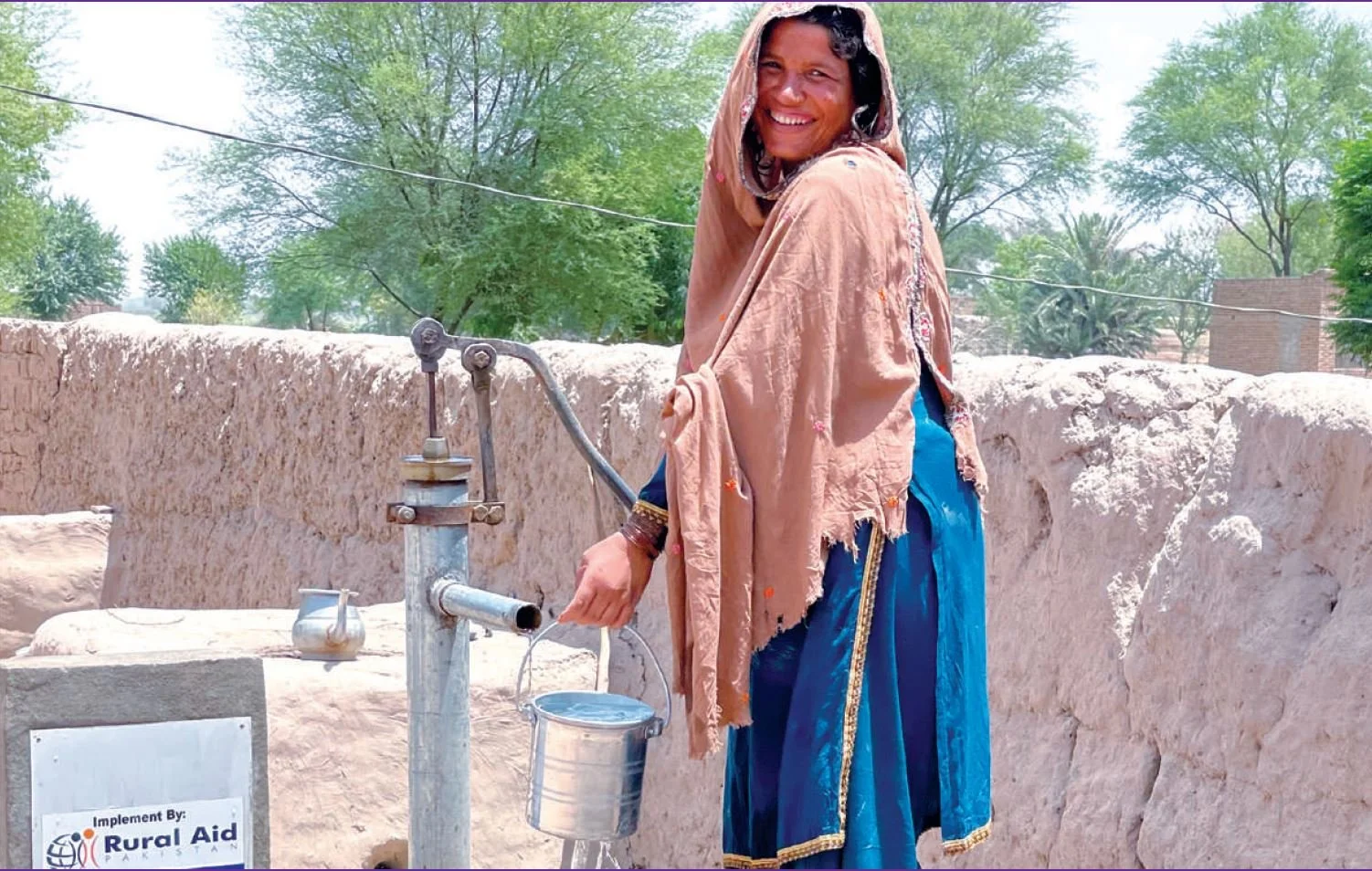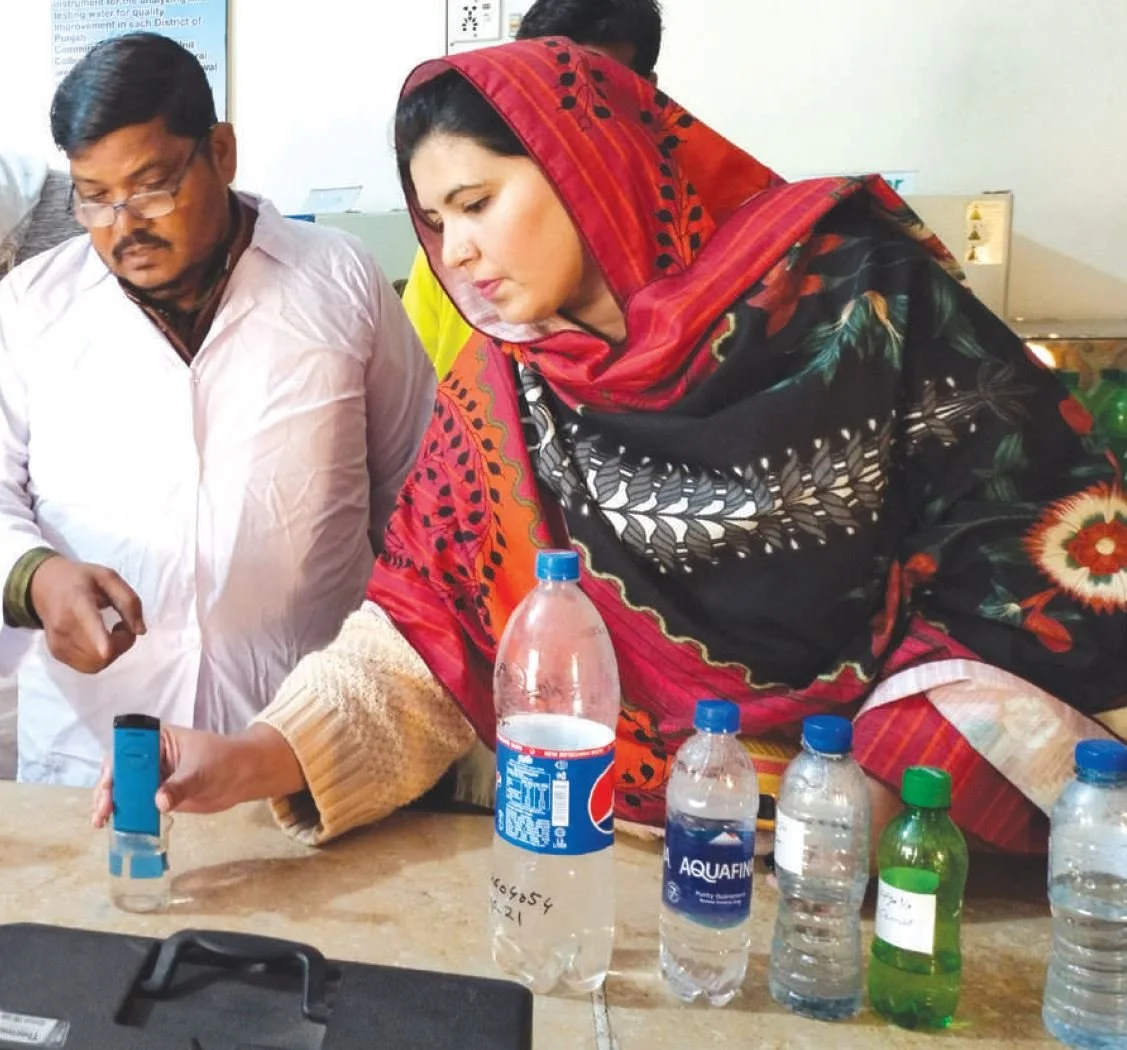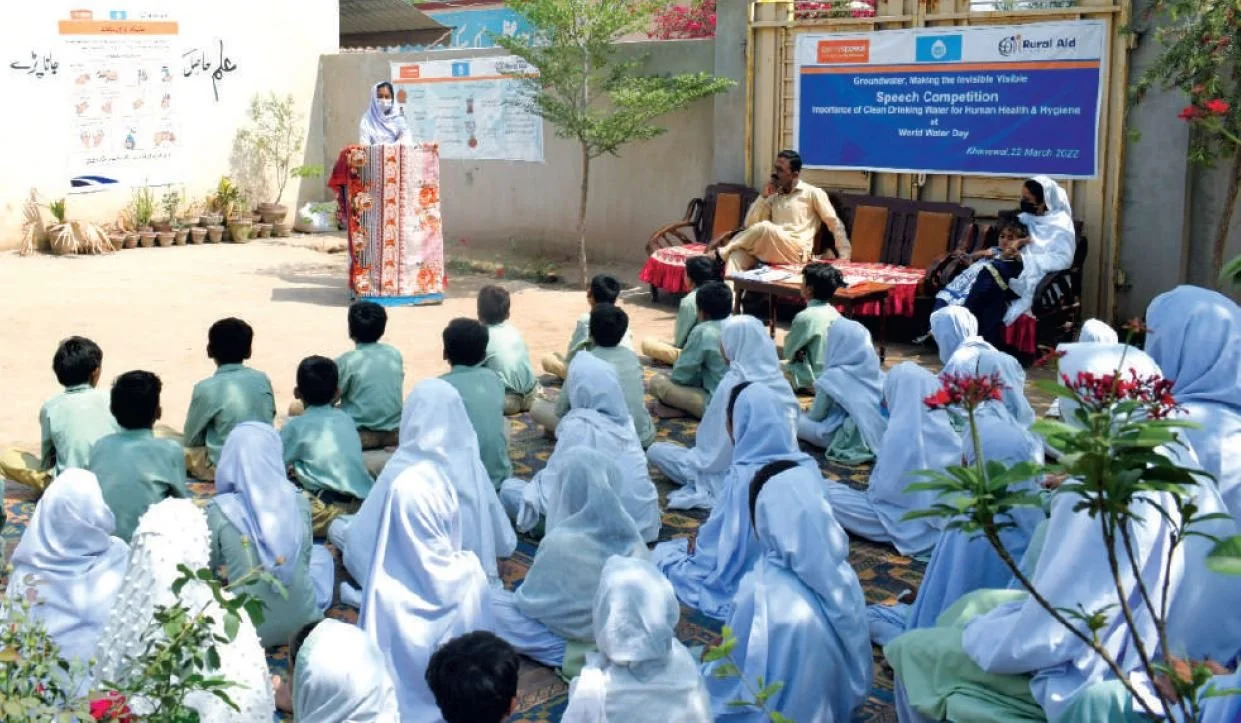Empowering Communities Through Clean Water Access in South Punjab
In the heart of South Punjab, where water scarcity affects millions of lives, Rural Aid Pakistan and Penny Appeal UK have implemented two transformative initiatives that are changing the way communities access water. Through parallel WASH programs in Multan and Khanewal districts, over 67,000 people now have clean water at their doorstep.
A Vision of Change
These ambitious initiatives, carried out between August 2021 and January 2023, represent a combined investment of PKR 58.76 million ($264,686 USD) in community development. In Multan, a PKR 28,990,125 ($130,586 USD) project installed 467 shallow water tube wells over 11 months. Meanwhile, Khanewal's PKR 29,770,293 ($134,100 USD) WASH program established 500 clean drinking water facilities and implemented comprehensive hygiene promotion activities over 17 months.
Together, these projects have transformed lives across both districts, reaching 20,169 men, 19,868 women, and 27,358 children, including 242 persons with disabilities. The comprehensive approach combines infrastructure development with community engagement, ensuring both immediate access to clean water and long-term sustainability through hygiene education and community ownership.
Partnerships for Progress
Success stemmed from strong collaborations between Rural Aid Pakistan, government departments, and local communities. Working closely with the Public Health Engineering Department and district administrations, the project ensured alignment with local development goals and technical standards. This partnership approach extended to community engagement, where local leaders and residents played crucial roles in site selection and implementation.
Empowering Women and Girls
For Shamim Mai of Beraywala village in Khanewal, the impact has been life-changing. Before the hand pump was installed at her home, she and her daughters would wake before dawn to fetch water, often missing school or arriving late. Today, they attend classes regularly, and Shamim has started a kitchen garden using the readily available water.
The project has particularly transformed life for women and girls across both districts. With water now available at home, girls can attend school regularly, and women have time for income-generating activities. The ripple effects include improved hygiene practices, better health outcomes, and increased economic opportunities for families.
Community-Led Implementation
The project's methodology centered on community ownership and participation through a comprehensive, systematic approach. From the earliest stages, Rural Aid Pakistan worked directly with local communities to select installation sites, ensuring locations would provide maximum benefit to the most vulnerable populations. This collaborative process included rigorous water quality testing and transparent beneficiary selection, with community members actively participating in decision-making. By implementing participatory monitoring systems, the project ensured ongoing community involvement and oversight, creating a strong foundation for sustainable, long-term success. This bottom-up approach transformed traditional aid recipients into active stakeholders, empowering communities to take ownership of their water resources and maintain them for future generations.
Building Local Capacity
A cornerstone of the project's sustainability is its comprehensive capacity-building program. Rural Aid Pakistan formed and trained 150 community-level WASH committees, comprising both men and women. These committees now oversee the operation and maintenance of the hand pumps, promote hygiene practices, and serve as community advocates for water conservation.
Training extended beyond technical maintenance to include:
Water safety and quality monitoring
Hygiene promotion
Environmental protection
Disaster risk reduction
Sustainable Impact
The results speak volumes: 83% of households have adopted safer health and WASH practices, waterborne diseases have decreased significantly, and communities are seeing improved livelihoods through kitchen gardening and livestock farming. The trained WASH committees continue to play vital roles in monitoring, supervision, and maintenance, ensuring the project's long-term sustainability.
Looking Forward
This initiative serves as a model for participatory development in rural Pakistan. Through its comprehensive approach combining infrastructure development, community engagement, and capacity building, Rural Aid Pakistan demonstrates how targeted interventions can create lasting positive change in vulnerable communities.
Learn More
Want to dive deeper into this transformative project? Explore our detailed documentation:
Read the Full Project Report (PDF) - Comprehensive details about implementation, outcomes, and impact
Read Stories of Change (PDF) - Inspiring stories from the communities we serve
These projects were implemented by Rural Aid Pakistan in partnership with Penny Appeal UK. For more information about our work or to support similar initiatives, please contact us at ruralaid.pk@gmail.com


